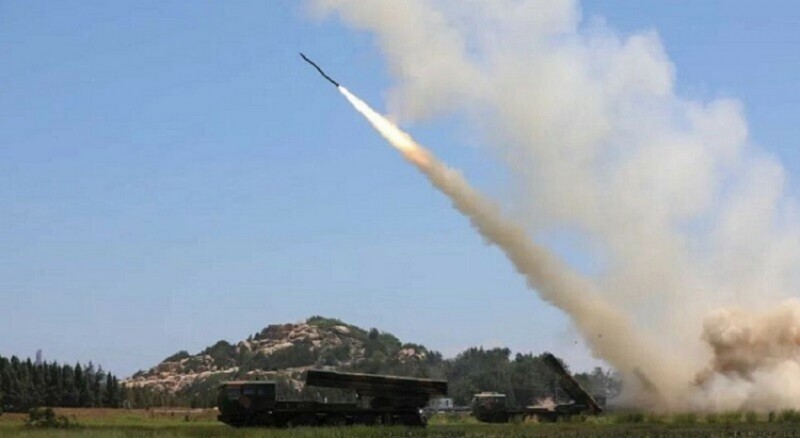
China conducted simulated missile strikes and deployed fighter jets with live missiles in drills on Friday, according to state television CCTV. These exercises were part of a two-day event that Beijing claimed was intended to retaliate against Taiwan's new president, Lai Ching-te.
Bombers formed attack formations in waters east of Taiwan, coordinating mock assaults with naval vessels. These actions were aimed at testing China's capability to "seize power" and control key areas around Taiwan.
Also Read: Taiwan President Vows to Support Military Amid Chinese Threats
The drills, named "Joint Sword - 2024A," were conducted in the Taiwan Strait and near islands controlled by Taiwan. They started just days after Lai assumed office on Monday. Taiwan condemned China's activities, which also reportedly included simulated bombing of foreign ships.
China considers Taiwan a part of its territory and has criticized Lai as a "separatist" after his inauguration speech urged Beijing to halt its threats. Lai emphasized that Taiwan and China are separate entities and should not be subordinate to each other.
Also Read: How China’s Largest Military Drills in a Year Challenge Taiwan's New President Lai Ching-te
The People's Liberation Army's Eastern Theatre Command stated that the exercises were meant to test their ability to jointly seize power, launch attacks, and occupy strategic areas.
According to a senior Taiwan security official, Chinese bombers conducted simulated attacks near the Bashi Channel, practicing how to assert control over areas west of the first island chain, which stretches from Japan through Taiwan to the Philippines and Borneo.
China's Coast Guard conducted law enforcement drills east of Taiwan, focusing on verification, identification, and warning operations. Chinese and Taiwanese naval vessels were observed shadowing each other in the Taiwan Strait.
The United States' 7th Fleet confirmed it was monitoring the situation closely. Although the U.S. officially recognizes Beijing, it maintains close ties with Taiwan, providing it with defense support.
Also Read: Taiwan Detects Chinese Military Vessels Near Its Waters
In a video posted on social media, the Chinese military depicted missile launches at Taiwanese cities. Taiwan's armed forces responded by mobilizing and closely monitoring Chinese movements.
Taiwanese media covered the drills extensively, alongside domestic political issues. Despite the military activity, there was no apparent increase in public alarm on the island.
Taiwan's official name is the Republic of China, but it is only diplomatically recognized by 12 countries. Analysts and officials noted that while the scale of the exercises was smaller than similar ones in 2022, they still raised concerns about potential accidents or misunderstandings.
Also Read: China Imposes Sanctions on Boeing and Two U.S. Defense Firms Over Taiwan Arms Sales